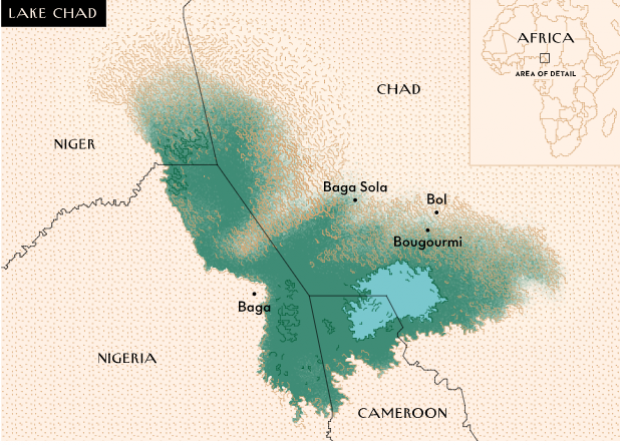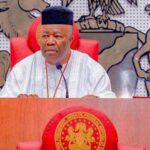Lake Chad, once the lifeline for millions of people in the Sahel Region, has been rapidly shrinking over the past few decades due to climate change and unsustainable water management practices. The dramatic decrease in the lake’s size has had severe consequences for the communities that rely on it, leading to economic instability and heightened security risks.
As Nigeria welcomes its new president, Bola Ahmed Tinubu, and with the valuable experience of the vice president-elect, Kashim Shettima, the time is ripe to address the urgent issue of recharging Lake Chad.
The recharging of the lake has been a major priority for the Nigerian government under the leadership of President Muhammadu Buhari and the international community for many years. The project aims to increase the volume of water in the lake by diverting water from the Oubangui (Ubangi) River, which flows into the Congo River, and transporting it to Lake Chad. This will help restore the lake to its former size and improve the livelihoods of millions of people in the region.
The recharging has significant economic and security implications for the region. The lake was once a major source of fish and other aquatic resources which provided livelihoods for millions of people. Restoring the lake will not only help revive the fishing industry but also create new opportunities for agriculture, regional cooperation, tourism and other economic activities.
- NAFDAC warns men against using recalled sex enhancement capsule
- Troops uncover arms cache in ISWAP’s underground armoury
Recharging is critical for regional security. The shrinking of the lake has led to the displacement of millions of people who are now living in poverty and facing the threat of extremism. The lack of economic opportunities and resources has made the region vulnerable to the influence of extremist groups such as Boko Haram which have been responsible for numerous attacks which hugely affects Nigeria in many ways.
Revitalising Lake Chad holds immense economic potential for the region. A restored lake will provide a reliable source of water for irrigation, enabling farmers to cultivate more land and diversify their crops. This increased agricultural productivity will not only boost food production, but also create employment opportunities and reduce poverty levels.
Additionally, a recharged lake will revitalise the fishing industry, offering a sustainable source of income for local communities and enhancing food security. These economic advancements will contribute to stability, as individuals find alternatives to extremist activities and experience improved living conditions.
To address these challenges, the incoming President Tinubu is urged to prioritise the recharging of Lake Chad as a key component of his economic and security agenda. The government should allocate significant resources to the project and work closely with international partners to mobilise funding and technical expertise.
The project will require significant investment, estimated to be around $14bn. The government can seek funding from a variety of sources, including international development banks, bilateral aid agencies and private investors. The government should also explore innovative financing mechanisms such as green bonds and Public-Private Partnerships (PPP).
In addition to funding, the recharging of Lake Chad will require technical expertise and coordination among multiple stakeholders. The government should work closely with international organisations such as the United Nations Development Programme (UNDP), World Bank and the African Development Bank (AfDB) to leverage their technical expertise and mobilise resources.
The project will require significant resources, funding and technical expertise, but it is critical for the region’s economic development and security.
Finally, the recharging of Lake Chad is not only a critical economic and security issue, but also a humanitarian one. Millions of people in the region are facing poverty, hunger and displacement due to the shrinking of the lake. Restoring the lake will not only improve their livelihoods, but also contribute to regional stability and security.
Adam (Ph.D) wrote from Abuja.

 Join Daily Trust WhatsApp Community For Quick Access To News and Happenings Around You.
Join Daily Trust WhatsApp Community For Quick Access To News and Happenings Around You.


